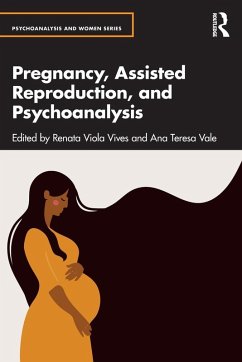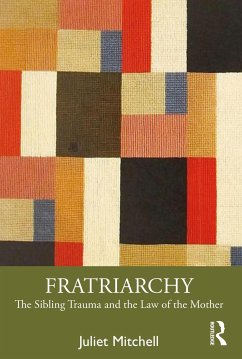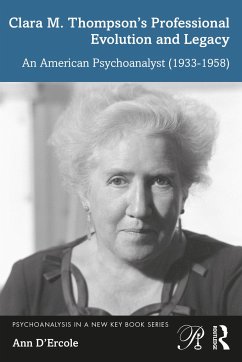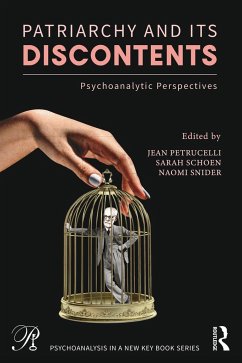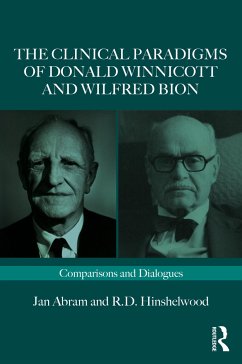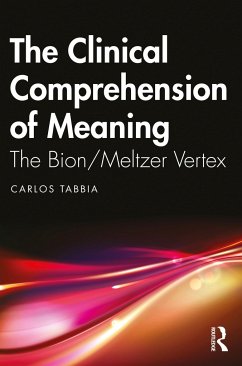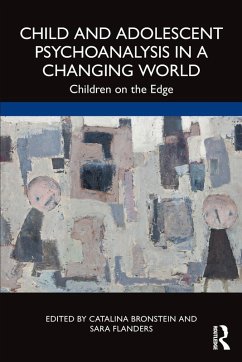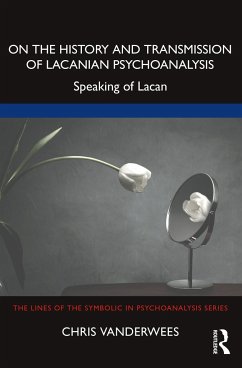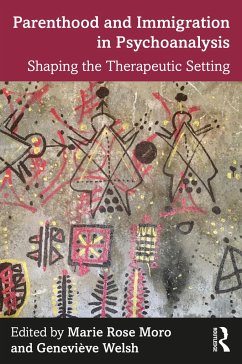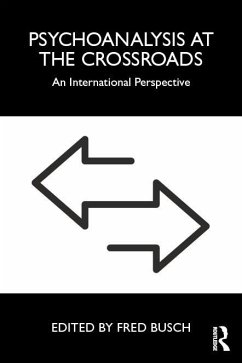
The Desire and Passion for a Child
Psychoanalysis and Contemporary Reproductive Techniques
Versandkostenfrei!
Versandfertig in 6-10 Tagen
34,99 €
inkl. MwSt.
Weitere Ausgaben:

PAYBACK Punkte
17 °P sammeln!
In this book, Patricia Alkolombre explores the desire for a child from a contemporary psychoanalytic perspective, and covers the questions raised in the face of new resources offered by reproductive medicine.This volume reviews traditional psychoanalytic conceptualisations from the perspective of gender theories and analyses theoretical hegemonies related to the desire and passion for a child. Alkolombre discusses how the 'passion to have a child' is a key aspect of motherhood, characterised by emotional intensity, persistence, and self-sacrificial aspects.The book is divided into three sectio...
In this book, Patricia Alkolombre explores the desire for a child from a contemporary psychoanalytic perspective, and covers the questions raised in the face of new resources offered by reproductive medicine.
This volume reviews traditional psychoanalytic conceptualisations from the perspective of gender theories and analyses theoretical hegemonies related to the desire and passion for a child. Alkolombre discusses how the 'passion to have a child' is a key aspect of motherhood, characterised by emotional intensity, persistence, and self-sacrificial aspects.
The book is divided into three sections: Part One deals with the desire and passion to have a child, while Part Two focuses on the impact of reproductive techniques, as well as the ever-changing role of parenthood in the modern day. Throughout these fascinating chapters, clinical vignettes of both individual and couple analyses span topics such as mourning, the use of reproductive technology, the anonymity of gamete donors, enigmatic infertility, surrogacy, and abortion from an interdisciplinary perspective. The historical and cultural contexts of infertility are reviewed from a psychoanalytic angle in Part Three with the view of transcending the former androcentric perspective that has deeply influenced the maternal ideal and expectations of men. Alkolombre also proposes a new analysis of the Oedipus myth.
This book is vital reading for psychoanalysts, mental health professionals, teachers and students interested in contemporary parenting, motherhood, and infertility, as well as the theoretical analysis of the desire for a child.
This volume reviews traditional psychoanalytic conceptualisations from the perspective of gender theories and analyses theoretical hegemonies related to the desire and passion for a child. Alkolombre discusses how the 'passion to have a child' is a key aspect of motherhood, characterised by emotional intensity, persistence, and self-sacrificial aspects.
The book is divided into three sections: Part One deals with the desire and passion to have a child, while Part Two focuses on the impact of reproductive techniques, as well as the ever-changing role of parenthood in the modern day. Throughout these fascinating chapters, clinical vignettes of both individual and couple analyses span topics such as mourning, the use of reproductive technology, the anonymity of gamete donors, enigmatic infertility, surrogacy, and abortion from an interdisciplinary perspective. The historical and cultural contexts of infertility are reviewed from a psychoanalytic angle in Part Three with the view of transcending the former androcentric perspective that has deeply influenced the maternal ideal and expectations of men. Alkolombre also proposes a new analysis of the Oedipus myth.
This book is vital reading for psychoanalysts, mental health professionals, teachers and students interested in contemporary parenting, motherhood, and infertility, as well as the theoretical analysis of the desire for a child.





